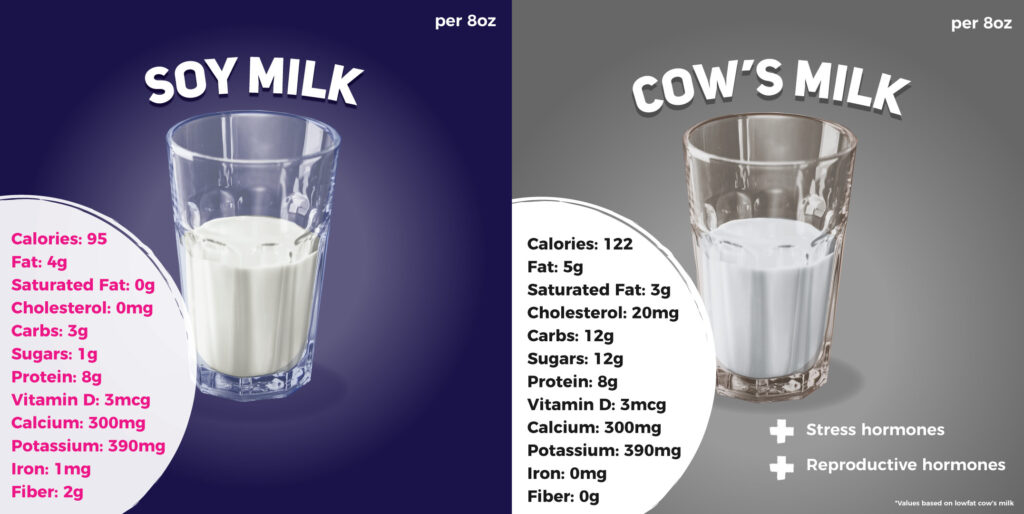Cow’s milk is inherently nourishing— it is designed by nature to be the sole nutrition source for infants and promote growth at a remarkable rate. However, it is the nutrients that are important, and fortunately none of them are exclusive to dairy products. They can all be found through other food sources.
How Kids Can Get Dairy Milk’s Nutrients from Other Sources

Direct substitutions:
Non-dairy milks can be easy alternatives, but be mindful of their nutritional profile. Fortified soy milk is nutritionally equivalent to dairy milk, as shown below. Most pea protein milks also have similar nutrient profiles and can be directly substituted.
Keep in mind other non-dairy milk alternatives may be lower in protein, but can still provide calcium and vitamin D, and be incorporated into a balanced and healthy diet.


Varied diet:
Calcium
Calcium from plants is often more bioavailable than the calcium found in milk.

Source: https://www.ncbi.nlm.nih.gov/pmc/articles/PMC8746734/
Kids can easily meet their recommended calcium requirements through food sources beyond dairy. Other foods that are naturally high in calcium include tofu, tahini, white beans, and chia seeds.
Protein
Watch Brenda Davis (Registered Dietitian) discuss how studies show children who follow a vegan diet can meet their nutrient needs, especially protein. They often have higher micronutrient intakes compared to children consuming dairy and animal products.Protein is important across the lifespan, but especially for kids’ growing bodies.
While all plants contain all 20 amino acids, some are relatively lower in certain amino acids and may not be considered complete protein sources on their own for this reason. However, a varied diet will help ensure all macronutrient needs are met without needing dairy products.
Complete protein plant foods:
- Quinoa
- Soy
- Hemp
- Chia seeds
- Buckwheat
- Spirulina
- Tempeh
High-protein plant foods:
- Tempeh (20 grams/cup)
- Lentils (18 grams/cup)
- Edamame (19 grams/cup)
- Hemp seeds (10 grams/ 3 tbsp)
- Tofu (26 grams/ 3/4 cup)
- Soy Milk (8 grams/cup)
- Pea milk (8 grams/cup)
- Quinoa (8 grams/cup)
- Black Beans (15 grams/cup)
- Peanut Butter (7 grams/2 tbsp)
Learn more at our protein guide.
Vitamin D
Remember that cow’s milk is fortified with vitamin D, so looking for other fortified foods is a comparable substitution. Non-dairy milks, fortified cereal, and fortified orange juice are easy to find, or a supplement may be necessary in some situations.
